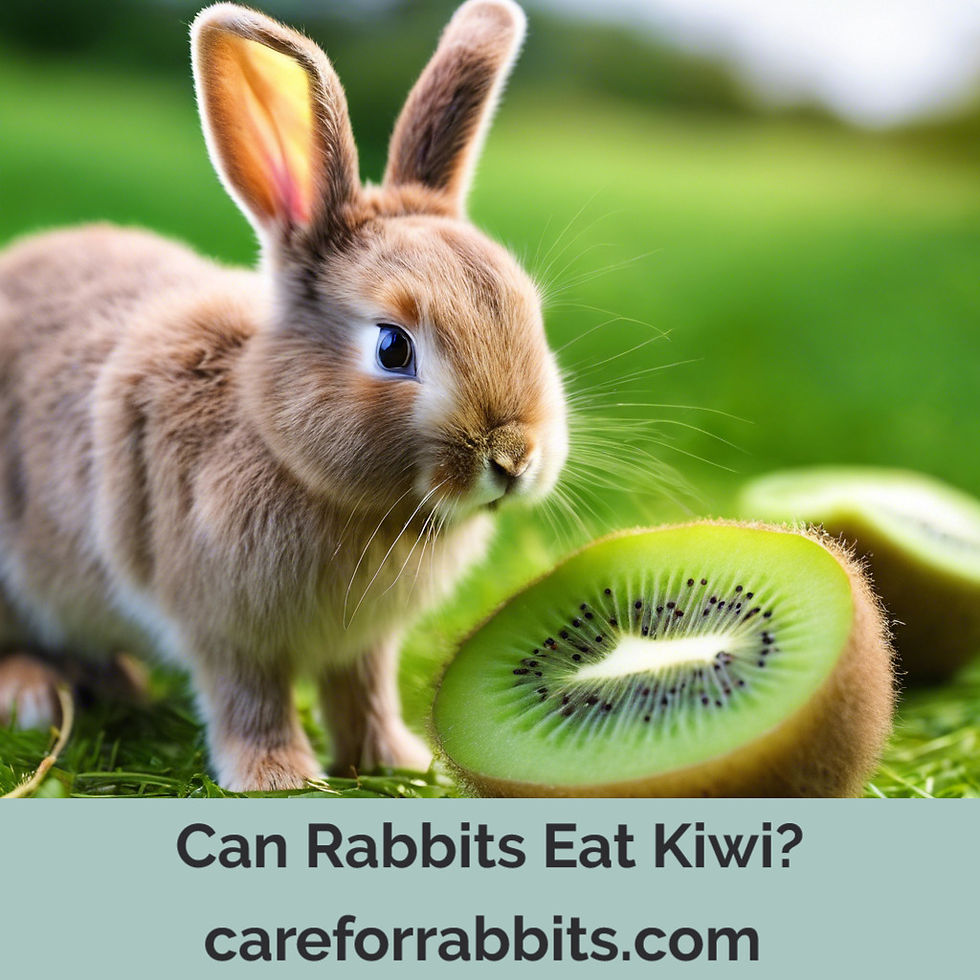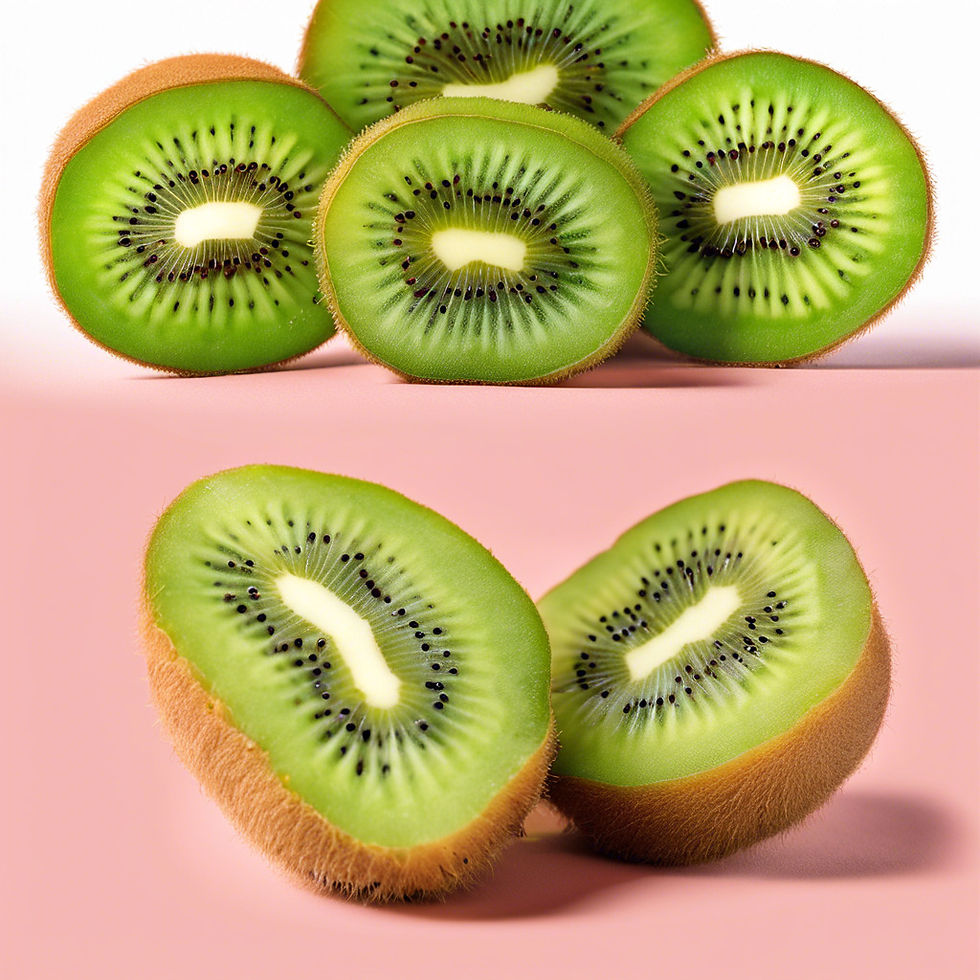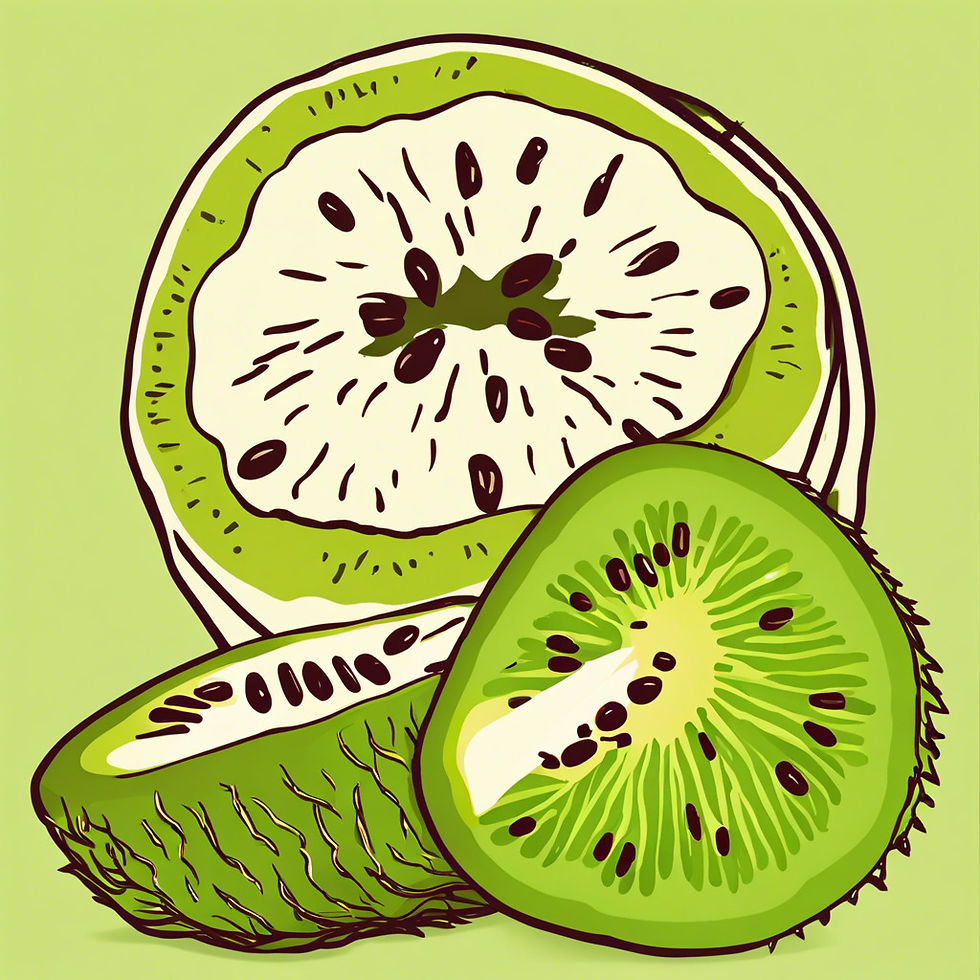The first time I held a fuzzy kiwi in my hand, I couldn’t help but wonder: Could my rabbit enjoy this sweet and tangy fruit as much as I do? As a dedicated rabbit owner, I’d always taken extra care when introducing new foods to my bunny, Willow. Rabbits, after all, have sensitive digestive systems, and even the smallest dietary mistake can cause problems.

So, before sharing a slice of kiwi with Willow, I decided to do my homework.
If you’re like me and wondering whether kiwi is safe for rabbits, you’ve come to the right place. In this article, we’ll dive into the nutritional value of kiwi, its potential benefits and risks, and the best practices for feeding it to your bunny.
Can Rabbits Eat Kiwi? The Short Answer
Yes, rabbits can eat kiwi in small amounts, but it should only be offered as an occasional treat. Kiwi is rich in vitamins and antioxidants, which can be beneficial to your rabbit’s health. However, its high sugar content means it’s not suitable for frequent feeding.
While kiwi is generally safe, there are important guidelines to follow to ensure your bunny enjoys it without any risks. Let’s take a closer look at the details.

Nutritional Benefits of Kiwi for Rabbits
Kiwi is a nutrient-dense fruit that’s packed with vitamins, minerals, and antioxidants. When offered in moderation, it can provide some health benefits for your bunny.
1. Vitamin C
Kiwi is an excellent source of vitamin C, which supports the immune system and helps rabbits fight off infections. While rabbits can produce their own vitamin C, a small boost from natural sources like kiwi doesn’t hurt.
2. Antioxidants
The antioxidants in kiwi help combat free radicals, reducing the risk of cell damage and promoting overall health.
3. Fiber
Although not as fiber-rich as hay or leafy greens, kiwi contains dietary fiber that can aid digestion and support gut health.
4. Hydration
With its high water content, kiwi can help keep your rabbit hydrated, especially during hot weather.
When I first offered Willow a tiny piece of kiwi, she gave it a few cautious sniffs before nibbling it with visible enthusiasm. Seeing her enjoy the treat made me curious about how often it was safe to feed her.

Risks of Feeding Kiwi to Rabbits
While kiwi has some health benefits, it’s important to be aware of the potential risks associated with feeding it to rabbits.
1. High Sugar Content
Kiwi is naturally sweet, which makes it appealing to rabbits but also means it’s high in sugar. Excessive sugar can lead to obesity, digestive issues, or an imbalance in gut bacteria.
Key Tip: Treats like kiwi should make up no more than 5% of your rabbit’s diet. Hay should remain the primary staple, with fresh greens and vegetables as supplements.
2. Digestive Sensitivity
Rabbits have sensitive digestive systems that can struggle to handle too much fruit, including kiwi. Overfeeding can lead to diarrhea, bloating, or other gastrointestinal problems.
3. Pesticides and Residue
Like many fruits, kiwis can carry pesticide residues. Always wash the fruit thoroughly
before offering it to your rabbit. Opt for organic kiwi whenever possible.
4. Choking Hazard (Seeds and Skin)
While kiwi seeds are small and generally safe, it’s best to remove the skin before feeding kiwi to your rabbit. The skin can be tough and difficult for them to chew, posing a choking hazard.
How to Safely Feed Kiwi to Your Rabbit
If you’ve decided to let your bunny enjoy some kiwi, here’s how to do it safely:
Step 1: Choose the Right Kiwi
Pick a ripe kiwi that’s soft but not mushy. Avoid underripe or overly firm kiwis, as they can be harder for your rabbit to digest.
Wash the fruit thoroughly to remove dirt, pesticides, or residues.
Step 2: Prepare the Kiwi
Peel the skin to eliminate the risk of choking or ingestion of tough fibers.
Cut the kiwi into small, bite-sized pieces.
Step 3: Start Small
Offer your rabbit a tiny piece of kiwi (about the size of a fingertip) the first time. Monitor them closely for any signs of discomfort or digestive upset, such as diarrhea or reduced appetite.
If your rabbit tolerates kiwi well, you can offer it as an occasional treat in small amounts—no more than a teaspoon-sized serving once or twice a week.
When I introduced kiwi to Willow, I gave her a single, tiny slice and waited 24 hours to see if her digestion was unaffected. Thankfully, she loved it and had no adverse reactions, but every rabbit is different.
Alternatives to Kiwi for Rabbit Treats
If your rabbit doesn’t seem interested in kiwi or you’re looking for other treat options, there are plenty of safe fruits and vegetables to choose from:
Fruits: Strawberries, apples (no seeds), blueberries, raspberries, or banana slices.
Vegetables: Carrot tops, cucumber, celery, or bell pepper.
Herbs: Parsley, cilantro, mint, or basil.
Each rabbit has its own preferences, so experiment with different options to see what your bunny loves most.
Personal Experience: Willow and Kiwi
The first time Willow tried kiwi, I could tell she was intrigued by the unfamiliar scent. After cautiously taking a nibble, she quickly gobbled up the rest of the tiny piece I offered her. Seeing her enthusiasm, I was tempted to give her more, but I reminded myself to stick to the recommended serving size.
Over the following weeks, kiwi became one of Willow’s favorite occasional treats. I made it part of her “special snack days,” where I’d offer her a mix of fruits and herbs. Watching her eagerly munch on her treats was always a highlight of my day.
Signs Your Rabbit Loves (or Hates) Kiwi
Rabbits have unique personalities, and their reactions to new foods can vary. Here’s how to tell if your bunny enjoys kiwi:
Signs They Love Kiwi:
They eagerly sniff and nibble the fruit.
They finish the piece you offer and look for more.
They appear relaxed and content after eating.
Signs They Dislike Kiwi:
They sniff the fruit but turn away or refuse to eat it.
They drop the piece after nibbling or spit it out.
They seem disinterested or avoid the kiwi entirely.
If your rabbit doesn’t like kiwi, don’t worry—there are plenty of other rabbit-safe treats to try!
FAQs: Can Rabbits Eat Kiwi?
1. Is kiwi safe for all rabbits to eat?
Kiwi is generally safe for healthy adult rabbits when given in moderation, but there are some exceptions to keep in mind. Rabbits with sensitive stomachs or a history of digestive issues may not tolerate kiwi well due to its sugar content and acidity.
Additionally, baby rabbits under 12 weeks old should not eat kiwi—or any fruit—as their digestive systems are still developing.
If you’re introducing kiwi to your rabbit for the first time, start with a very small piece (about the size of your fingertip) and monitor them for 24 hours. Look for any signs of discomfort, such as diarrhea, reduced appetite, or lethargy. If your rabbit reacts negatively, it’s best to avoid offering kiwi in the future.
Pro Tip: Always consult your veterinarian before introducing new foods to your rabbit’s diet, especially if they have preexisting health conditions.
2. How much kiwi can I give my rabbit?
Kiwi should be treated as an occasional snack rather than a staple in your rabbit’s diet. The general rule of thumb is to offer no more than 1–2 teaspoons of fruit per 2 pounds of your rabbit’s body weight, and this includes kiwi.
For an average-sized rabbit, a thin slice or two small cubes of kiwi once or twice a week is plenty. Overfeeding sugary treats like kiwi can disrupt your rabbit’s digestive system, leading to issues such as diarrhea, gas, or obesity.
Personal Example:When I gave Willow a slice of kiwi, I made it part of her “treat day,” where she’d get a mix of fresh greens and a small piece of fruit. I stuck to a small portion and balanced it with her regular hay and pellets to ensure her diet stayed healthy.
3. Can rabbits eat dried kiwi instead of fresh kiwi?
Dried kiwi is not recommended for rabbits. While fresh kiwi contains natural sugars, drying the fruit concentrates those sugars, making dried kiwi much sweeter and higher in calories. Rabbits don’t need sugary foods in their diet, and feeding them dried kiwi could lead to weight gain, dental issues, and digestive upset.
If you’re looking for a safe and healthy treat for your bunny, stick to fresh kiwi in small amounts. Alternatively, consider other rabbit-safe fruits like strawberries, blueberries, or apple slices (without seeds).
4. Should I peel the kiwi before giving it to my rabbit?
Yes, it’s a good idea to peel the kiwi before offering it to your rabbit. While the skin of a kiwi isn’t toxic, it’s tough and fibrous, which can be difficult for rabbits to chew and digest. Additionally, kiwi skin may have residual pesticides or dirt, even after washing.
By removing the skin, you reduce the risk of choking and ensure your rabbit only gets the soft, juicy fruit inside.
Personal Experience:The first time I gave Willow kiwi, I left the skin on, and she completely ignored it. When I peeled it and offered her a small, juicy slice, she eagerly nibbled it and seemed much more interested.
5. Are kiwi seeds safe for rabbits?
Kiwi seeds are generally safe for rabbits to eat because they’re small, soft, and easy to digest. Unlike the seeds of fruits like apples or cherries, kiwi seeds don’t contain harmful substances like cyanide.
That said, there’s no need to go out of your way to remove the seeds. When feeding your rabbit kiwi, simply cut the fruit into small pieces and let them enjoy it as is. Just remember to keep the portion size small to avoid overloading your rabbit’s system with sugar.
6. What should I do if my rabbit eats too much kiwi?
If your rabbit accidentally eats too much kiwi, it’s important to monitor them closely for signs of digestive upset. Common symptoms of overfeeding fruit include:
Loose stools or diarrhea
Gas or bloating
A reduced appetite or reluctance to eat hay
Lethargy or unusual behavior
If you notice any of these symptoms, provide your rabbit with plenty of fresh hay and water to help stabilize their digestion. Avoid giving them any additional fruits or sugary treats for the next few days.
When to Call the Vet:If your rabbit shows severe symptoms like a lack of droppings, prolonged diarrhea, or visible discomfort (such as hunched posture or teeth grinding), contact your veterinarian immediately. These could be signs of gastrointestinal stasis (GI stasis), a serious condition that requires prompt treatment.
Personal Note:I once accidentally gave Willow a slightly larger portion of kiwi than intended. While she seemed fine initially, I noticed she had slightly softer stools the next day. Cutting back on treats and offering more hay quickly resolved the issue. This experience reminded me how important portion control is when feeding fruit to rabbits.
Final Thoughts: A Sweet Treat in Moderation
Kiwi can be a delightful and nutritious treat for rabbits when offered in moderation. Its high vitamin content and sweet flavor make it a fun addition to your bunny’s diet, but its sugar content means it should remain an occasional indulgence rather than a regular snack.
For me, incorporating kiwi into Willow’s diet was a rewarding experience. Watching her enjoy the juicy, sweet fruit was a reminder of how much joy small moments can bring when caring for a beloved pet. If you’re considering introducing kiwi to your rabbit, remember to start slow, monitor their reaction, and keep it as an occasional treat. Your bunny’s health and happiness will thank you for it. 🐰🍍
Comments